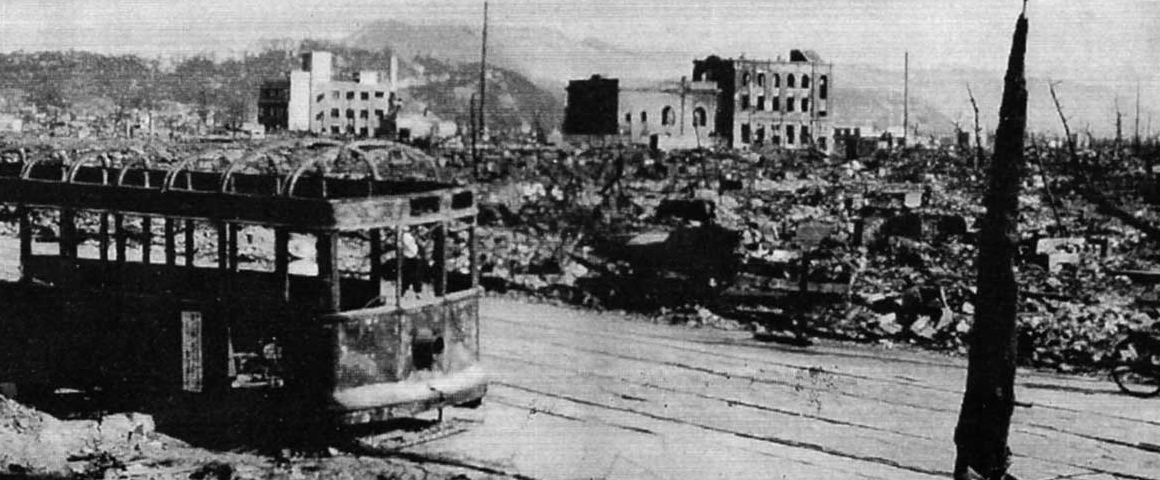By Garrett Halas
August 9 marked the 79th year since the US dropped an atomic bomb on Nagasaki, killing roughly 80,000 people. Every year, Nagasaki officials invite representatives from different countries around the world for an annual commemoration. But this year, it decided not to extend an invitation to Israel.
Nagasaki officials have been critical of Israel’s assault on the Gaza strip, and in July they wrote to the Israeli embassy calling for an immediate ceasefire. They later decided to hold off on inviting Israeli ambassador Gilad Cohen to the commemoration ceremony, citing a “potential risk of contingencies” arising from “various developments worldwide around the present Middle East situation.”
Nagasaki Mayor Shiro Suzuki said that this “very tough decision” was made “not for political reasons,” but in order to avoid the possibility of disruptions during the event. “We want to conduct a smooth ceremony in a peaceful and solemn environment.”
Israel’s ambassador accused Suzuki of “inventing” security concerns and “hijacking this ceremony for his own political motivations.”
In response, several Western countries – including Canada, the US, France, Germany, Italy, Britain and the European Union – protested Israel’s exclusion by threatening to reduce their participation in the event. US Ambassador to Japan, Rahm Emanuel, along with other Western envoys including Canada’s Ambassador Ian McKay, opted not to attend the ceremony, instead sending lower-ranking representatives.
The Western envoys urged Nagasaki to reverse its decision and invite Israel, to preserve the universal message of the city’s ceremony. At the same time, they continued to support the exclusion of Russia and Belarus.
The diplomatic boycott triggered protests in Tokyo, where citizens expressed outrage and viewed the decision as a betrayal of Nagasaki’s peace message. Chants of “Shame on you” in English and “Stop blackmailing Nagasaki,” were heard in the area as the protesters held Palestinian flags and banners.
This boycott of the Nagasaki commemoration ceremony once again showcases a blatant disregard for the victims of Western bombs. Israel’s Heritage Minister Amichai Eliyahu has proposed dropping a nuclear bomb on Gaza. Other Israeli government ministers have made similar genocidal statements including labeling all Palestinians as “Amalek” (the “enemy of Jewish people.”)
Yet, the Liberal government continues to position Canada as Israel’s “closest ally,” consistently lending support for Israel’s “right to defend itself” as it carries out blatant genocidal massacres of Palestinian people on a near-daily basis.
The Canadian government has consistently resisted pressure from people across Canada and widespread grassroots protests calling for a ceasefire, and it has even worked to normalize anti-Palestinian racism and discrimination within public institutions in Canada. Ottawa has shown unequivocal support for Israel in votes at the United Nations, including a recent vote meant to condemn Israel for permitting illegal settlements in the West Bank – Canada was one of only seven countries to vote against the resolution, thus signaling its support for further destruction in the region.
Michael Bueckert, Vice President of Canadians for Justice and Peace in the Middle East (CJPME) condemned the Trudeau government’s boycott of the Nagasaki event as a “grotesque political stunt” which was “incredibly disrespectful to the civilian victims of mass killing in both Japan and Gaza.” He added that, “it is absurd that Canada is standing up for Israel’s right to attend a memorial ceremony for the victims of the United States’ nuclear bomb on Nagasaki, while its ministers casually call for dropping the same weapons on civilians in Gaza. Canada is demonstrating that its priority is not a ceasefire but defending the sensibilities and reputation of a genocidal regime.”
In many ways, Gaza has helped reveal the blatant hypocrisy of Western leaders who lecture the world on human rights and de-colonialism. The Canadian government boycotts memorials for victims of nuclear weapons to defend the right of a nuclear power to continue bombing its own victims. It preaches democracy then votes against the will of the vast majority of nations to recognize the state of Palestine or put a stop to Israel’s destruction of the West Bank. The Canadian government condemns Russia for attacking Ukraine while remaining silent as Israel wipes out Gaza. It condemns the boycott movement against Israeli apartheid but will employ similar boycott methods to defend the same Israeli apartheid.
Canada may have once had some legitimate claim to being a “peacekeeper” in world affairs, but those days – to the extent they ever existed – are long gone. In order to be a peacekeeper, it is necessary to maintain a position of political neutrality and firmly adhere to the law. A state that takes radically one-sided positions on international affairs, launches petty boycotts against global partners, or adheres to international laws only when they are convenient, is not a reliable mediator to negotiate peace and cooperation.
Canada’s antics on the world stage have fanned the flames of militarism, aggression and war, at a time when there is a desperate need for disarmament, détente and peace. Peace-minded people and movements need to mobilize to win a new independent Canadian foreign policy based on peace, sovereignty and national self-determination, and international cooperation.
Support working-class media!
If you found this article useful, please consider donating to People’s Voice or purchasing a subscription so that you get every issue of Canada’s leading socialist publication delivered to your door or inbox!
For over 100 years, we have been 100% reader-supported, with no corporate or government funding.




